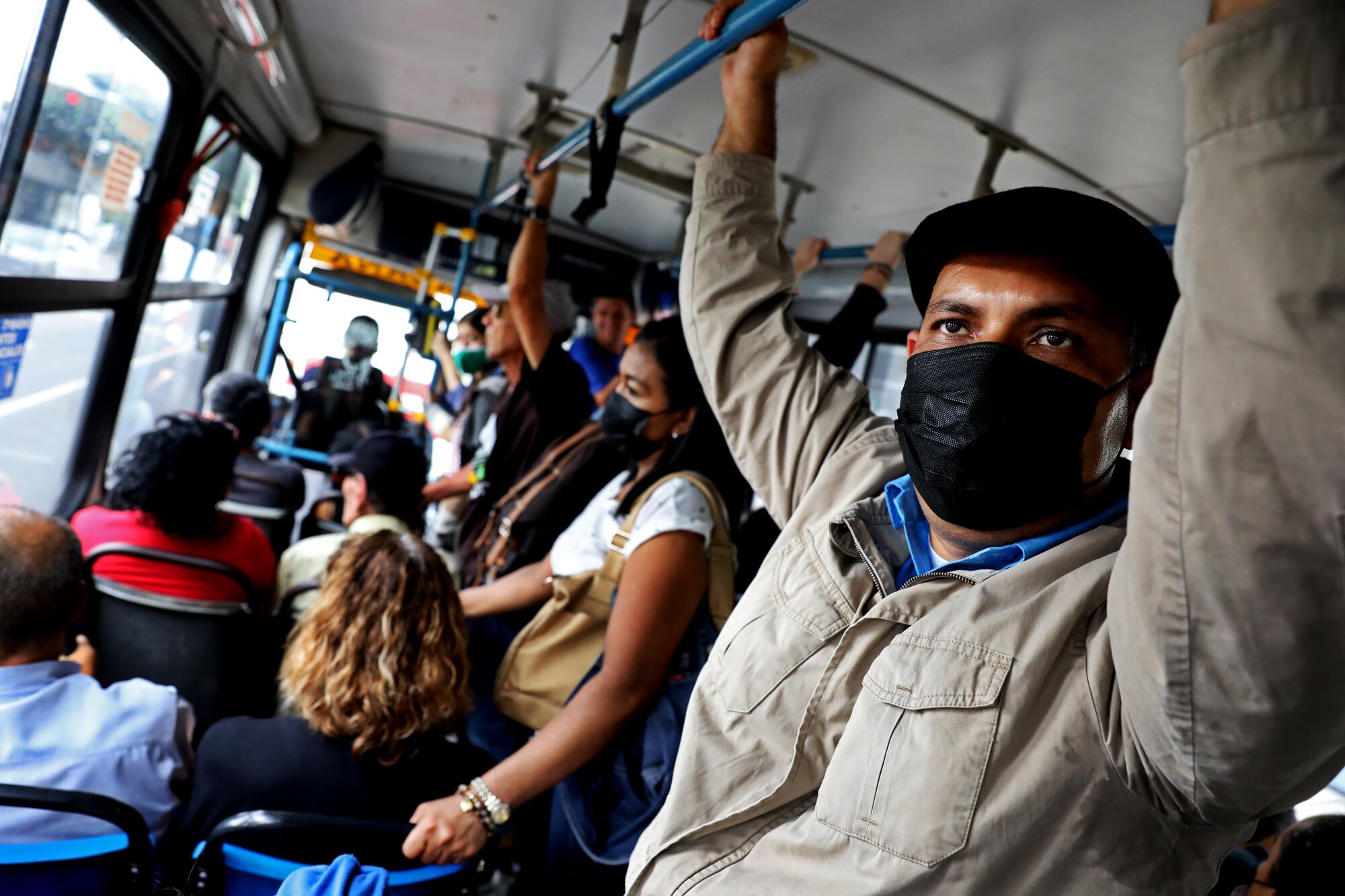
- Share via
SAN JOSE, Costa Rica — On Father’s Day last year, Octavio Enríquez shared pizza and soda with his two children. Then he told them he was leaving.
A Nicaraguan journalist known for rigorous investigations, his latest reporting had led him dangerously close to President Daniel Ortega, a former leftist revolutionary who ruled his nation — one of the poorest and most corrupt in the Western Hemisphere — with little mercy.
Enríquez, 42, was preparing a series of stories that exposed Ortega’s links to nearly two dozen businesses that had received millions of dollars in government contracts. But the reporter worried he would be jailed before he could publish.
“Never be ashamed of your father,” Enríquez said as he hugged his children and headed under cover of darkness for a border crossing. “I’m on the right side of history.”
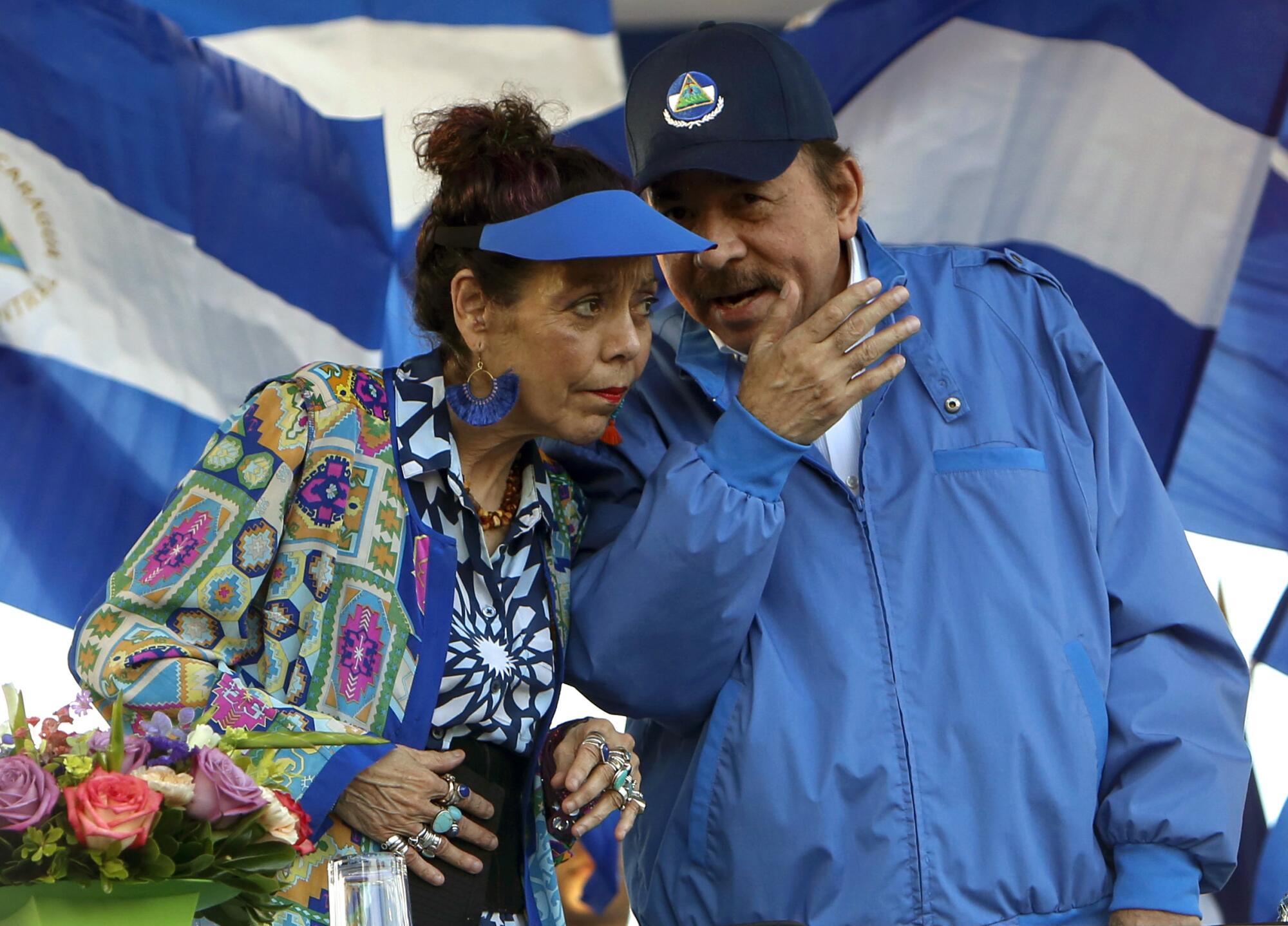
After violently suppressing democratic protests in 2018, Ortega and his wife, Vice President Rosario Murillo, have tightened their grip on power, imprisoning political opponents, business leaders and members of civil society and attacking freedom of expression from all sides.
They raided newsrooms, jailed journalists and ordered dozens of news outlets to close. They pushed a series of laws that made it a crime to spread “fake” news and publish information not authorized by the government — and even banned newspapers from importing paper and ink.
The offices of Confidencial, the online newsmagazine where Enríquez worked, had been occupied by police forces and its publisher was facing money laundering charges dismissed by human rights advocates as “absurd.”
Then Enríquez was called in for police questioning over his connection to a nonprofit that trained journalists — which the government claimed was a front for the CIA.
He and his wife, who is also a journalist, decided the only way he could continue reporting on Ortega’s finances was if he fled the country. They didn’t tell anyone where he was going, not the kids or his twin brother, with whom he shared a passion for social justice and writing.
As Enríquez hiked for hours in the dark, reaching safety in Honduras just as the sun was rising, he joined the estimated 200,000 Nicaraguans who have fled the country since 2018, a mass exodus that includes at least 140 journalists.
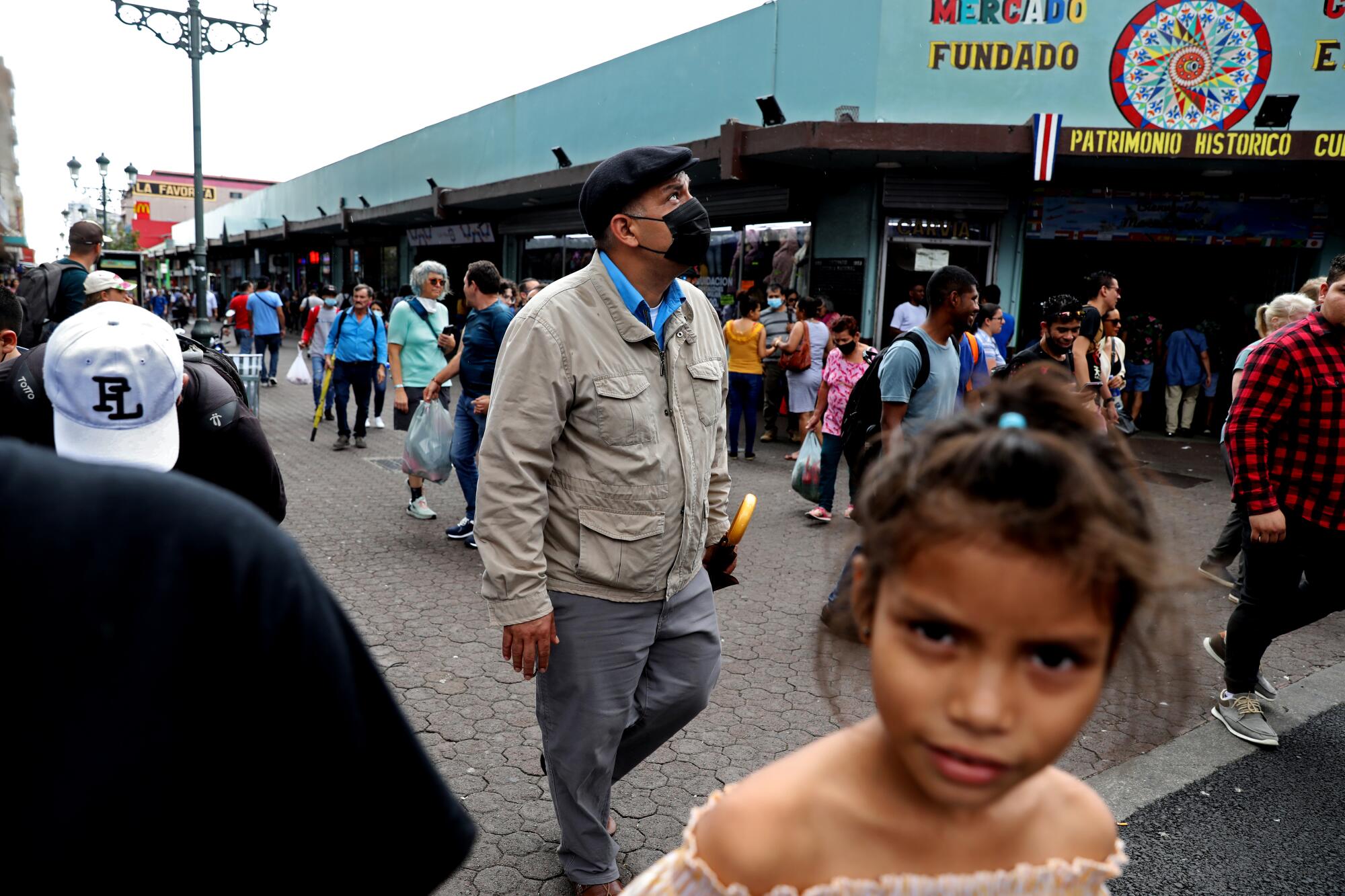
With virtually no independent media left inside the country and foreign reporters banned from entering, Nicaragua has become “an information black hole,” said Natalie Southwick of the Committee to Protect Journalists. Government propaganda is all that remains. The Ortega family and its allies own multiple television and radio channels that portray the United States as “the Yankee empire” and pro-democracy protesters as “coup plotters,” “terrorists” and “termites.”
“Not even Orwell could have dreamed up a country like this,” said Gioconda Belli, a writer and former guerrilla fighter who was the president of PEN Nicaragua until the freedom-of-expression group was booted from the country last year. “It’s a dystopia. Reality is completely distorted.”
For Enríquez and other newly minted members of the Nicaraguan diaspora, the message is clear: It is on them to expose the truth of what is happening back home.
That mandate is shared by more and more journalists these days, as hundreds of media workers globally have fled their countries. From Russia to Afghanistan to Hungary, freedoms are under attack as those in power subvert national narratives for their own gain.
The problem is especially bad in Central America, where leaders in Guatemala and El Salvador have copied many of Nicaragua’s novel legal strategies for neutralizing the media and civil society, part of a larger shift toward authoritarianism in the region.
Even from exile, the risks of a journalist reporting on an authoritarian state are considerable.
When Enríquez escaped, traveling from Honduras to Bogota, Colombia, and eventually to San Jose, Costa Rica, he continued investigating, analyzing official documents exposing Ortega’s secret links to multiple companies. Last August, Enríquez sent an email to Murillo, the government spokesperson, asking her to comment on the evidence.
She didn’t respond. Instead, police arrived at Enríquez’s home in Nicaragua and pounded on the door. Officers told his startled wife and children that Enríquez was wanted again for questioning.
He knew at that moment he had to do two things: Finish his investigation and get his family out.
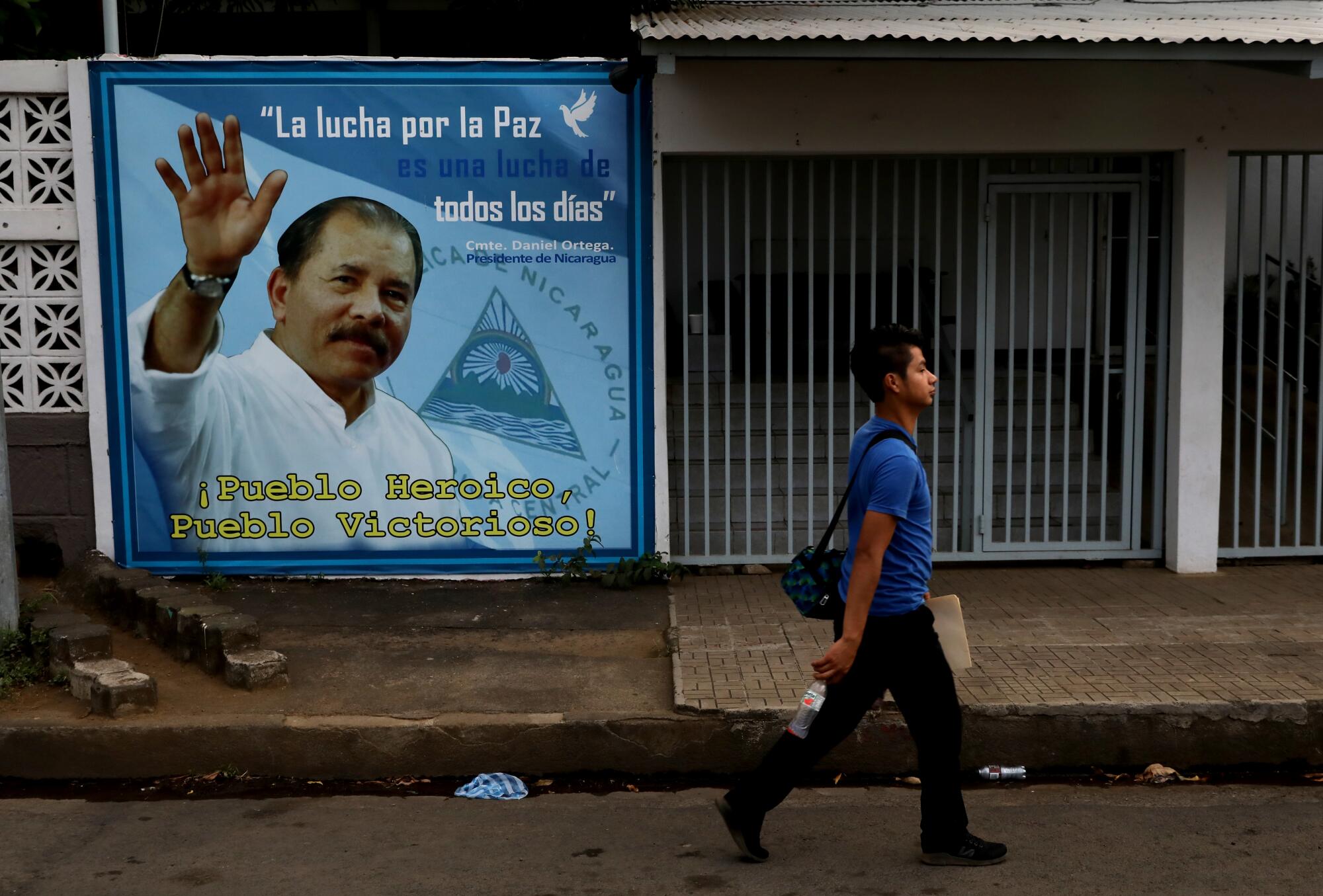
Ortega, 76, has been a leading protagonist in Nicaragua’s history since the 1970s, when he and his ragtag army of Sandinista revolutionaries helped topple Anastasio Somoza, a right-wing dictator whose family had controlled the country for decades, enriching itself while Nicaraguans languished in poverty.
Ortega served as president in the 1980s during a bloody civil war that pitted Sandinista fighters against U.S.-backed Contra rebels. He was voted out in the 1990 presidential election but returned to power in 2007. By rigging elections, he has remained president since, becoming the longest-serving leader in Latin America.
Many of Ortega’s friends from the revolution have turned on him, saying he betrayed their dreams of a socialist utopia and has come to resemble the dictator they helped overthrow.
That is not the story Ortega wants told. He has long been hostile to the independent press, once closing a newspaper during the civil war that he accused of “supporting U.S. aggression.”
But in recent years, reporters had been able to operate more or less freely, and a host of new online outlets had sprung up, staffed by a generation of idealistic young journalists. They were tolerated by a government that wanted at least the veneer of civil liberties.
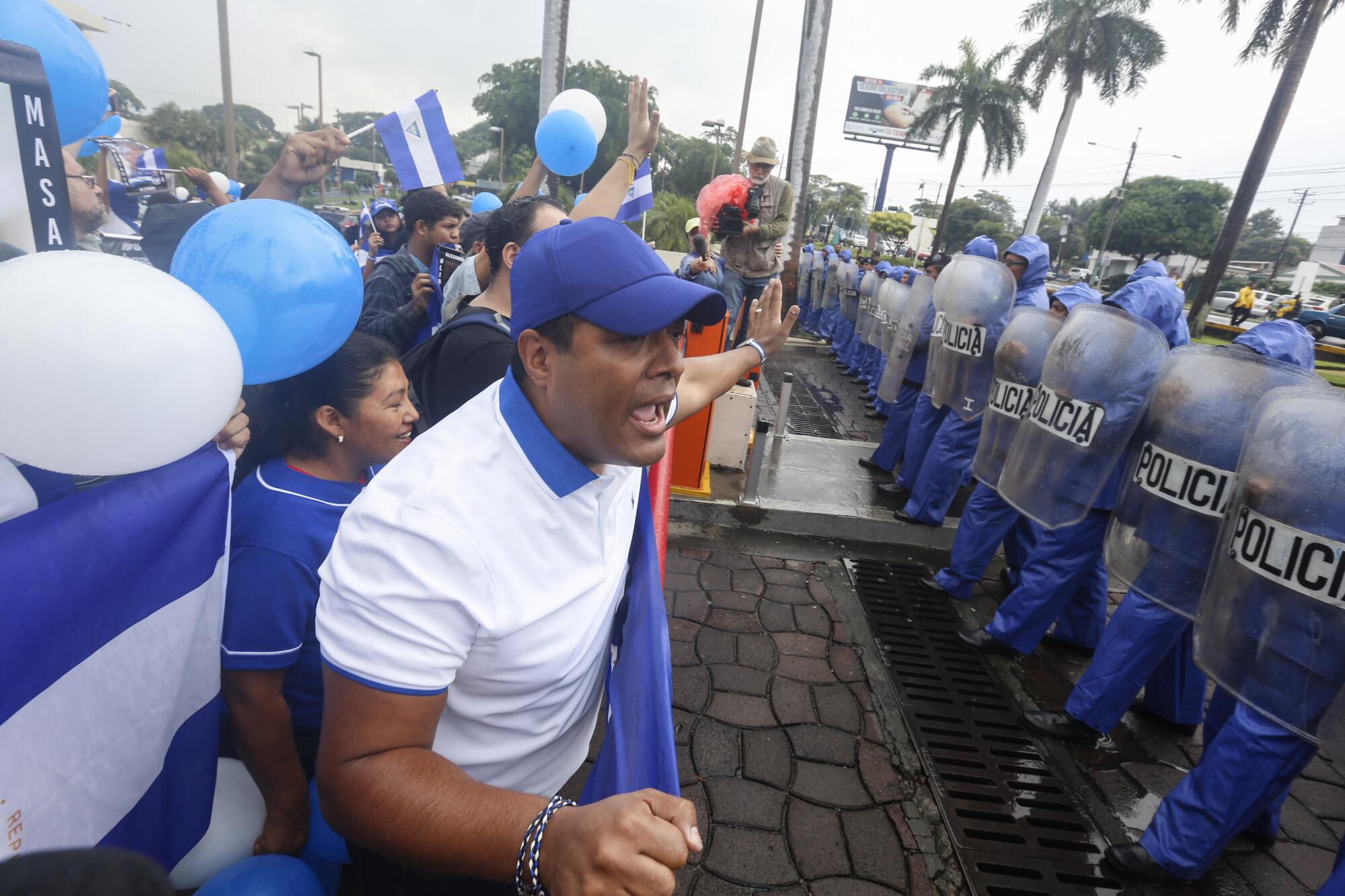
That changed on April 18, 2018, when nationwide protests erupted, spurred, in part, by media reports about a sweeping social security reform that would increase taxes and decrease benefits. As outraged citizens massed in the streets, police and pro-Ortega paramilitary groups opened fire, killing dozens.
Néstor Arce, 31, was livestreaming the protests in the capital, Managua, still dressed in slacks after teaching a university journalism class that morning. He identified himself as a journalist but was attacked three times, one of dozens of reporters and photographers injured that day.
As Arce reported through months of protests and deadly repression, his colleagues were frequently beaten and one was shot to death. When police occupied two news outlets and began hauling journalists to jail, he decided it was time to leave.
Arce returned to Nicaragua the following year to open a news site, Divergentes, with several friends. But in the lead-up to the country’s presidential elections in 2021, Ortega began jailing opponents and resumed his attacks on journalists.
Two of Arce’s colleagues at Divergentes were called in for police questioning. Arce realized he was under surveillance and did not wait around for his summons — he fled a second time.
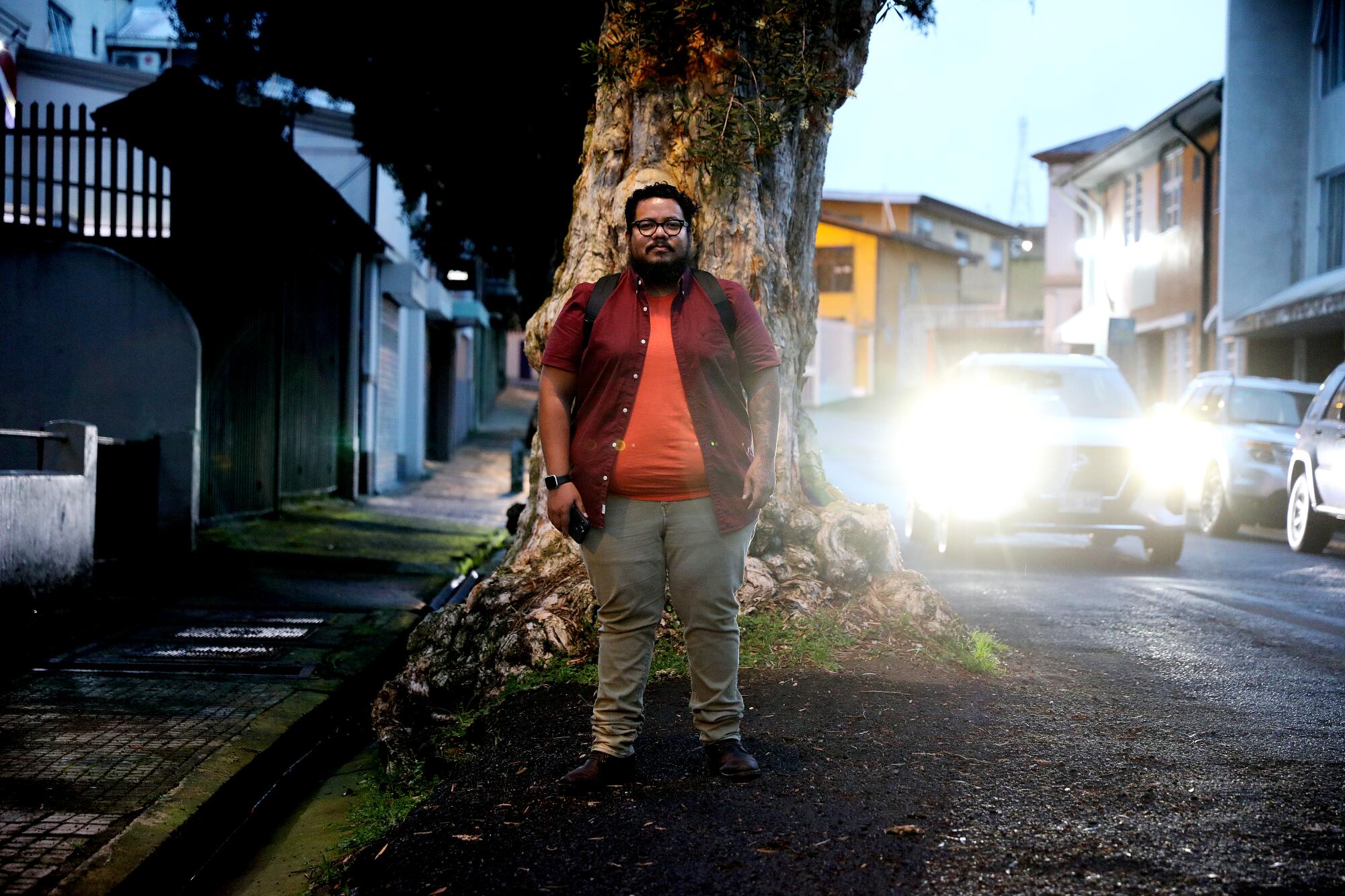
“Journalism has become a crime,” Arce said. “We had to close before they seized our offices, took our computers and sent us to jail.”
Arce and his team settled in Costa Rica, joining the more than 150,000 Nicaraguans who have fled to this country, long a beacon of peace and democracy in conflict-ridden Central America.
He and his team report from a co-working space in a hip section of the country’s capital above a popular coffee shop.
Arce, who on a recent rainy afternoon sipped a mocha latte as he typed on his laptop, said he likes Costa Rica, but spends so much time thinking about Nicaragua that he sometimes forgets he is no longer there. He wonders about all the stories not being told back home, and about the lies invented by a government held to little accountability.
His website features the news of the day — such as a surge in remittances from Nicaraguans abroad or the ongoing case against a Catholic bishop whom Murillo has accused of committing crimes “against spirituality” — but it also tackles bigger projects. A recent multimedia piece examined, in unprecedented scope, what exactly happened during the 2018 protests.
It named the government officials who carried out the crackdown and detailed hundreds of prosecutions of protesters on terrorism charges. Video testimony from eyewitnesses was published alongside stories about the legions of parents of slain student activists forced to flee the country. This year the project won the Ortega y Gasset prize, one of the highest awards in Spanish-language journalism.
“We all covered the protests as breaking news,” Arce said. “We wanted to have everything in a single place, and contribute to the construction of historical memory.”
He hopes the series will be a bulwark against collective amnesia, and maybe someday could be used to help prosecute those who committed crimes. He sometimes questions, though, the impact he is having, wondering who can endure longer: authoritarian leaders or a free press.
“Of course there are times when you feel frustrated,” said Arce as he drove through the streets of San Jose with the help of a navigation app. “We all think about and dream about a future without Ortega.”
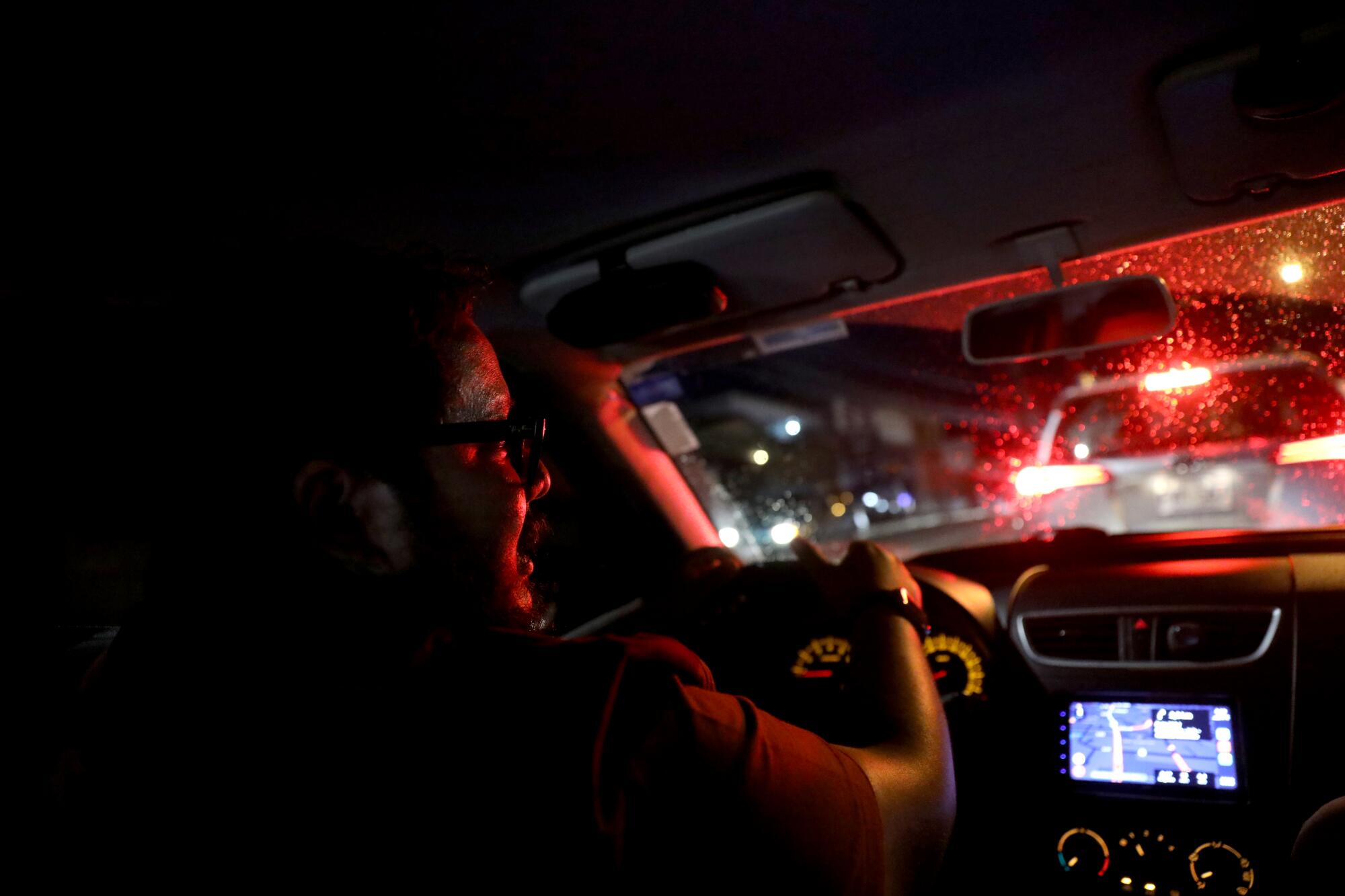
Lucía Pineda is also in exile in Costa Rica. She was stone-faced the other day as she interviewed the wife of a political prisoner who has been held in Nicaragua for more than a year.
“What impression do these photos give you?” Pineda asked, alluding to two pictures of the prisoner, NGO employee Walter Gómez. One showed Gómez before he was jailed, robust and smiling. Another was an artist’s rendition of what Gómez looks like today — 60 pounds lighter, with a gaunt face and boney shoulders.
“It’s anguishing,” said Consuelo Céspedes, the wife of Gómez. “I’m afraid he could die.”
Pineda, 48, has raised awareness about the plight of the nearly 200 political prisoners languishing in Nicaraguan prisons. She was one of them.
The news channel that Pineda works for, 100% Noticias, covered the 2018 protests extensively, airing footage of authorities committing human rights abuses.
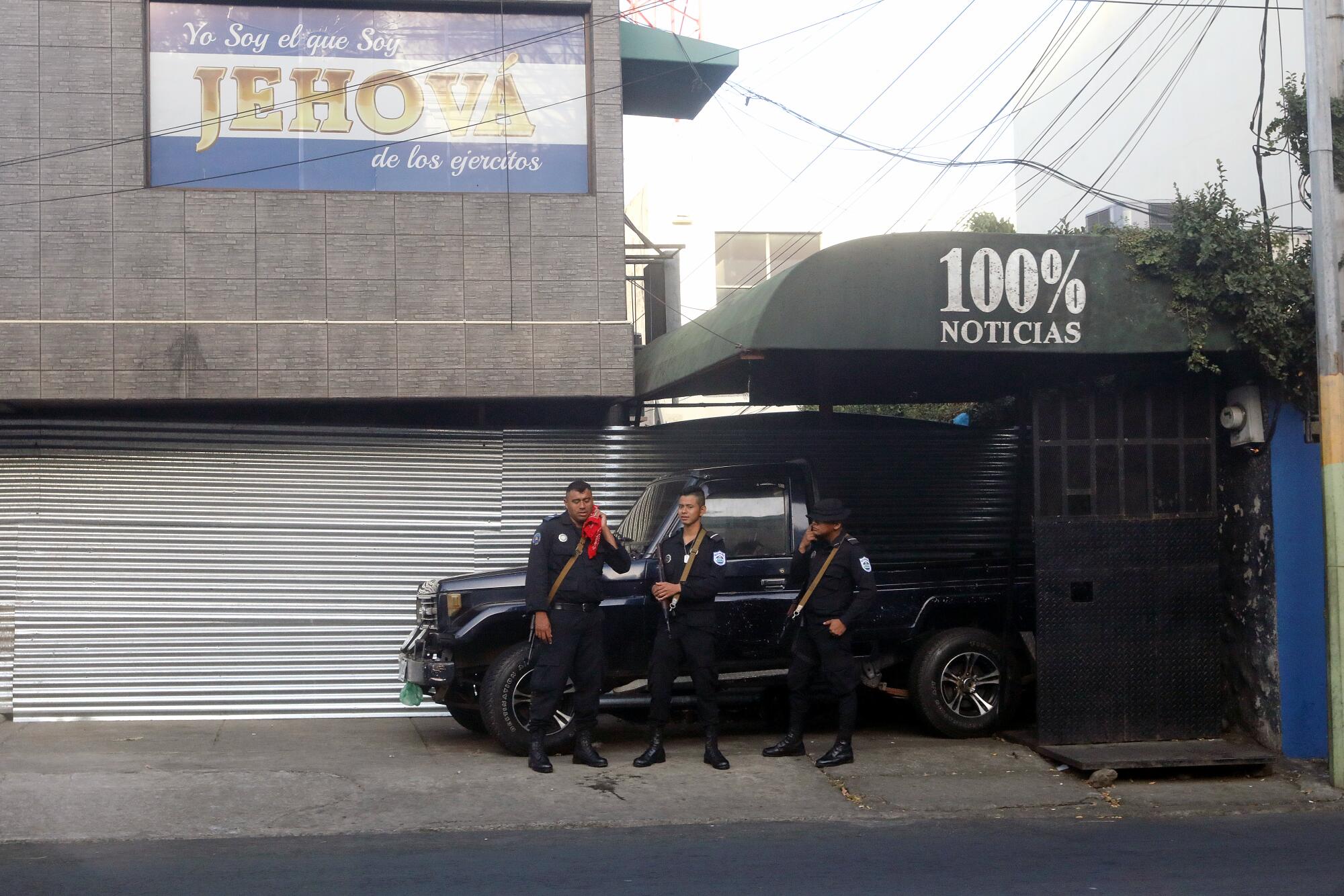
It wasn’t long before police turned up at their headquarters. Authorities cut the station’s signal and hauled away its owner, Miguel Mora. As Pineda reported on what was happening via Facebook Live, police returned to the station and arrested her. “They wanted to silence the truth,” she said.
She spent six months in jail, part of it in the country’s notorious El Chipote prison, where the Somoza government had tortured Sandinista fighters. She was held in solitary confinement and interrogated constantly, including 30 times in a single week.
“You incited violence,” her jailers insisted, saying the channel had encouraged protests. “Where did the money come from?”
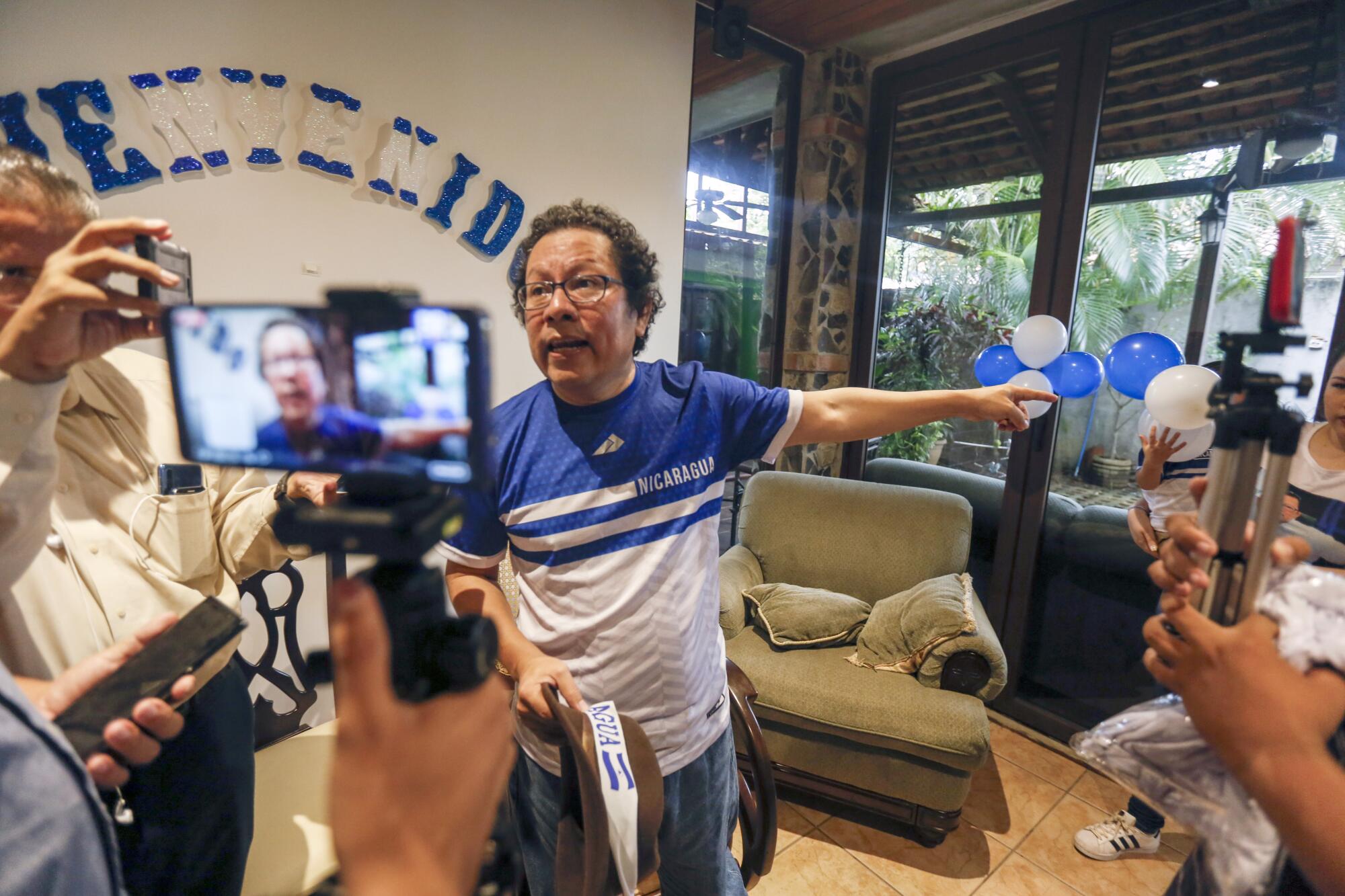
Pineda and Mora were released in 2019. She immediately fled to Costa Rica, where her mother urged her to change professions. But Pineda resumed work immediately, relaunching the channel as online-only using computers lent by Costa Rican journalist friends.
Pineda took over for Mora after he separated from the channel and announced he was running for president. He was jailed a second time last year and remains imprisoned.
At times, it seems Ortega is more powerful than ever, Pineda said. But she is proud that she “did not give Ortega the pleasure of destroying the channel,” now one of the top sources of news on Nicaragua. The country is home to 6 million people, with about 600,000 living abroad. Her website gets 23 million visitors each year.
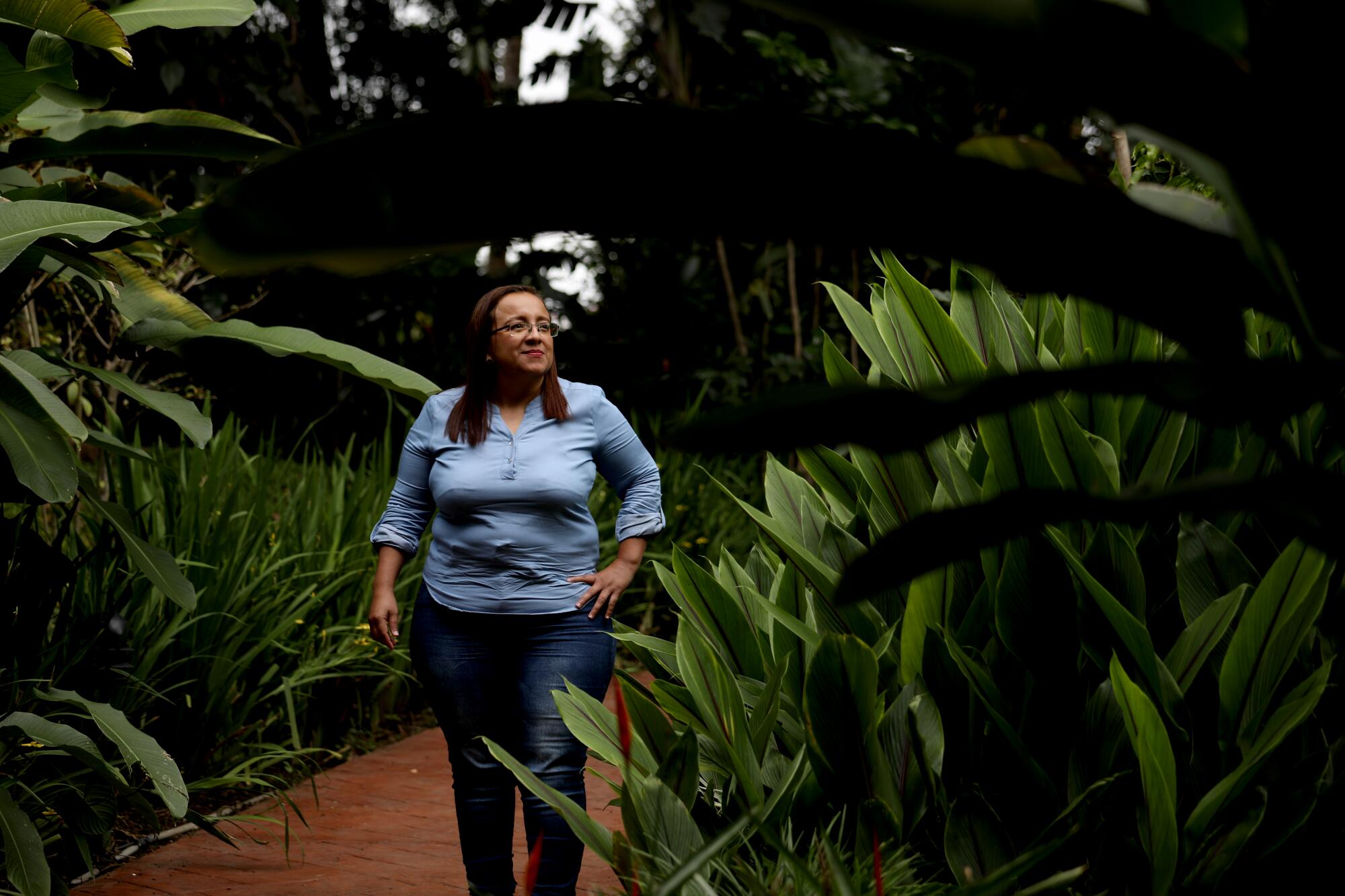
Enríquez never figured he’d have to arrange safe houses for his family in Nicaragua. But after the police showed up at his home last year, he had them move every few weeks.
It was during the time that his twin brother died after contracting COVID-19.Enríquez doesn’t blame Ortega for his brother’s death, but he says the government’s response to the pandemic demonstrated the dangers of a dictator who is free to spin whatever narrative he wants.
As nations around the world locked down to help contain the coronavirus in 2020, Ortega assured his country there was nothing to worry about.
Schools and businesses remained open as Ortega encouraged residents to attend concerts, parades and sporting events. “If the country stops working, it dies,” he said.
Reporters showed how the government purposely undercounted infections and deaths. But nobody knows exactly how many Nicaraguans have died in the pandemic.
As Enríquez mourned the death of his brother and saved money to help his family leave, he found solace in his work. “Journalism saved me,” he said.
He finally got his family out before the winter holidays. They crossed on foot into Costa Rica and spent the next few days celebrating their reunion and decorating a Christmas tree.
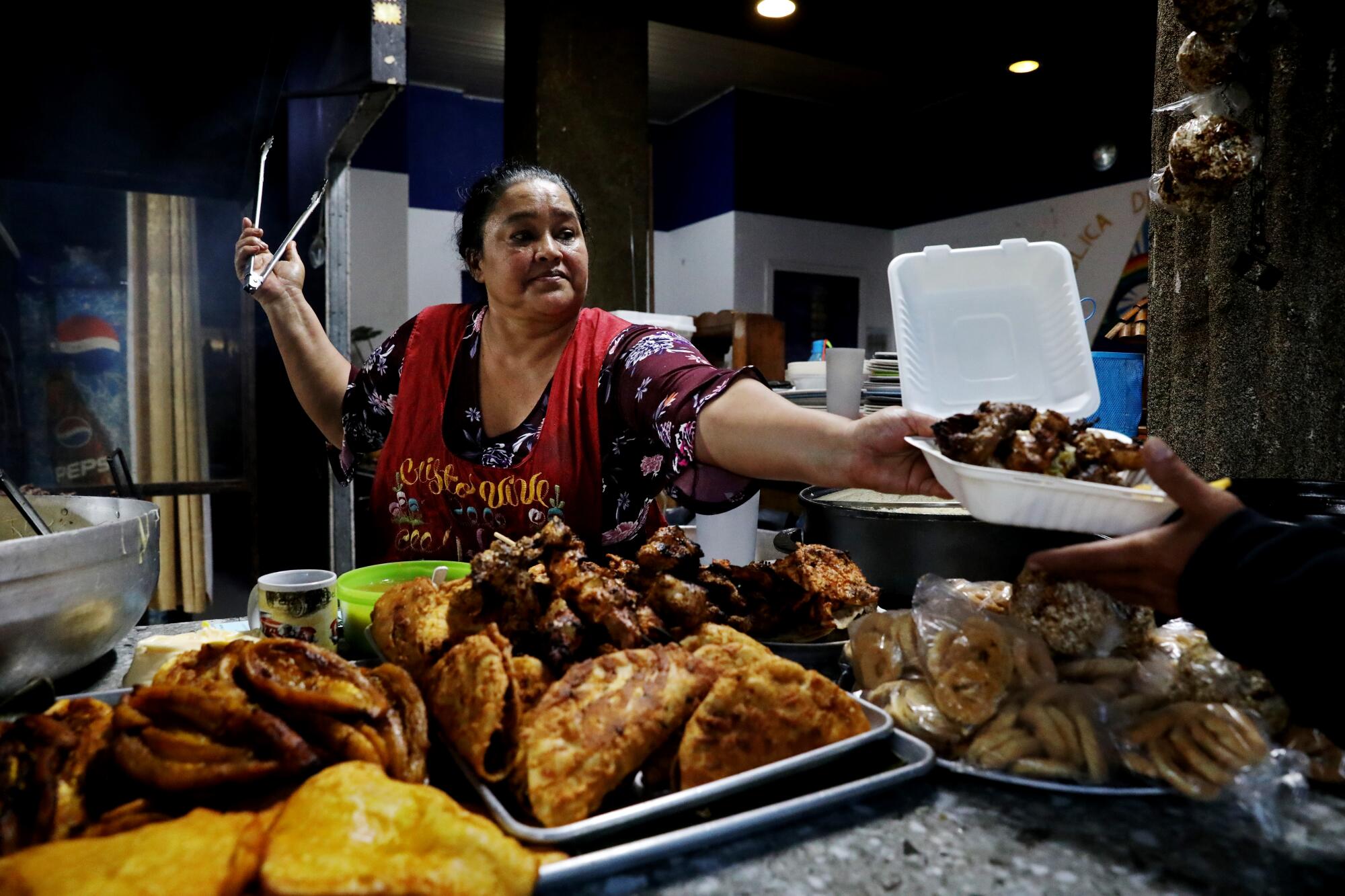
Enríquez published his investigation in February. The stories caused a splash throughout Latin America, but in Nicaragua, the president and his family remained silent.
Enríquez was left wondering whether the stories had any impact at all.
“I believe journalism changes things,” he said. “I just don’t know how quickly.”
But then he remembers 2018, when a protest song emerged as a rallying cry for those marching in the streets. The song referenced an investigation Enríquez had published a year earlier about social security fraud.
Enríquez knows that in Nicaragua, it is too dangerous for people to talk openly about the government’s transgressions. But he is convinced that they are following the news produced by independent sources, and that it is fomenting unrest below the surface, like a volcano that could erupt at any time.
More to Read
Sign up for Essential California
The most important California stories and recommendations in your inbox every morning.
You may occasionally receive promotional content from the Los Angeles Times.















